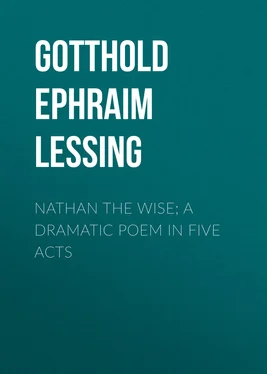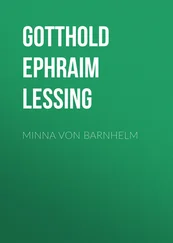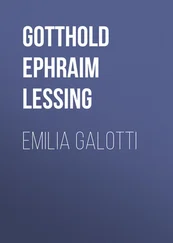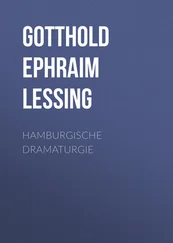DAYA
For some days after, underneath you palms,
That shade his grave who rose again from death,
We saw him wandering up and down. I went,
With transport went to thank him. I conjured,
Intreated him to visit once again
The dear sweet girl he saved, who longed to shed
At her preserver’s feet the grateful tear—
NATHAN
DAYA
But in vain. Deaf to our warmest prayers,
On me he flung such bitter mockery—
NATHAN
DAYA
Oh, no, oh, no, indeed not,
Daily I forced myself upon him, daily
Afresh encountered his dry taunting speeches.
Much I have borne, and would have borne much more:
But he of late forbears his lonely walk
Under the scattered palms, which stand about
Our holy sepulchre: nor have I learnt
Where he now is. You seem astonished—thoughtful—
NATHAN
I was imagining what strange impressions
This conduct makes on such a mind as Recha’s.
Disdained by one whom she must feel compelled
To venerate and to esteem so highly.
At once attracted and repelled—the combat
Between her head and heart must yet endure,
Regret, Resentment, in unusual struggle.
Neither, perhaps, obtains the upper hand,
And busy fancy, meddling in the fray,
Weaves wild enthusiasms to her dazzled spirit,
Now clothing Passion in the garb of Reason,
And Reason now in Passion’s—do I err?
This last is Recha’s fate—Romantic notions—
DAYA
Aye; but such pious, lovely, sweet, illusions.
NATHAN
DAYA
Yes: and the one, her bosom
Clings to most fondly, is, that the brave templar
Was but a transient inmate of the earth,
A guardian angel, such as from her childhood
She loved to fancy kindly hovering round her,
Who from his veiling cloud amid the fire
Stepped forth in her preserver’s form. You smile—
Who knows? At least beware of banishing
So pleasing an illusion—if deceitful
Christian, Jew, Mussulman, agree to own it,
And ’tis—at least to her—a dear illusion.
NATHAN
Also to me. Go, my good Daya, go,
See what she’s after. Can’t I speak with her?
Then I’ll find out our untamed guardian angel,
Bring him to sojourn here awhile among us—
We’ll pinion his wild wing, when once he’s taken.
DAYA
NATHAN
And when, my Daya,
This sweet illusion yields to sweeter truth,
(For to a man a man is ever dearer
Than any angel) you must not be angry
To see our loved enthusiast exercised.
DAYA
You are so good—and yet so sly. I’ll seek her,
But listen,—yes! she’s coming of herself.
Nathan, Daya, and Recha
RECHA
And you are here, your very self, my father,
I thought you’d only sent your voice before you.
Where are you then? What mountains, deserts, torrents,
Divide us now? You see me, face to face,
And do not hasten to embrace your Recha.
Poor Recha! she was almost burnt alive,
But only—only—almost. Do not shudder!
O ’tis a horrid end to die in fire!
NATHAN ( embracing her )
My child, my darling child!
RECHA
You had to cross
The Jordan, Tigris, and Euphrates, and
Who knows what rivers else. I used to tremble
And quake for you, till the fire came so nigh me;
Since then, methinks ’twere comfort, balm, refreshment,
To die by water. But you are not drowned—
I am not burnt alive.—We will rejoice—
We will praise God—the kind good God, who bore thee,
Upon the buoyant wings of unseen angels,
Across the treacherous stream—the God who bade
My angel visibly on his white wing
Athwart the roaring flame—
NATHAN ( aside )
White wing?—oh, aye
The broad white fluttering mantle of the templar.
RECHA
Yes, visibly he bore me through the fire,
O’ershadowed by his pinions.—Face to face
I’ve seen an angel, father, my own angel.
NATHAN
Recha deserves it, and would see in him
No fairer form than he beheld in her,
RECHA
Whom are you flattering, father—tell me now—
The angel, or yourself?
NATHAN
Yet had a man,
A man of those whom Nature daily fashions,
Done you this service, he to you had seemed,
Had been an angel.
RECHA
No, not such a one.
Indeed it was a true and real angel.
And have not you yourself instructed me
How possible it is there may be angels;
That God for those who love him can work miracles—
And I do love him, father—
NATHAN
And he thee;
And both for thee, and all like thee, my child,
Works daily wonders, from eternity
Has wrought them for you.
RECHA
NATHAN
Well, and although it sounds quite natural,
An every day event, a simple story,
That you was by a real templar saved,
Is it the less a miracle? The greatest
Of all is this, that true and real wonders
Should happen so perpetually, so daily.
Without this universal miracle
A thinking man had scarcely called those such,
Which only children, Recha, ought to name so,
Who love to gape and stare at the unusual
And hunt for novelty—
DAYA
Why will you then
With such vain subtleties, confuse her brain
Already overheated?
NATHAN
Let me manage.—
And is it not enough then for my Recha
To owe her preservation to a man,
Whom no small miracle preserved himself.
For whoe’er heard before that Saladin
Let go a templar; that a templar wished it,
Hoped it, or for his ransom offered more
Than taunts, his leathern sword-belt, or his dagger?
RECHA
That makes for me; these are so many reasons
He was no real knight, but only seemed it.
If in Jerusalem no captive templar,
Appears alive, or freely wanders round,
How could I find one, in the night, to save me?
NATHAN
Ingenious! dextrous! Daya, come in aid.
It was from you I learnt he was a prisoner;
Doubtless you know still more about him, speak.
DAYA
’Tis but report indeed, but it is said
That Saladin bestowed upon this youth
His gracious pardon for the strong resemblance
He bore a favourite brother—dead, I think
These twenty years—his name, I know it not—
He fell, I don’t know where—and all the story
Sounds so incredible, that very likely
The whole is mere invention, talk, romance.
Читать дальше












